Unveiling 10 Health Secrets of Indian Spices! Explore the unexpected benefits waiting in your kitchen
India, the land of vibrant colours and rich culture, is also known as the "Spice Garden of the World."
For centuries, Indian spices have been an integral part of our cuisine, adding flavour and aroma to every dish.
But did you know that these flavourful ingredients also pack a powerful punch when it comes to health benefits? Beyond just taste, many common Indian spices possess medicinal properties that can improve your overall well-being. Let's explore ten surprising health benefits of these easily accessible spices:
Turmeric's anti-inflammatory & antioxidant properties benefit health
Turmeric, with its bright yellow colour, is a staple in Indian cooking and is known for its potent anti-inflammatory and antioxidant properties. The active compound in turmeric, curcumin, has been extensively studied for its positive effects on various health conditions.
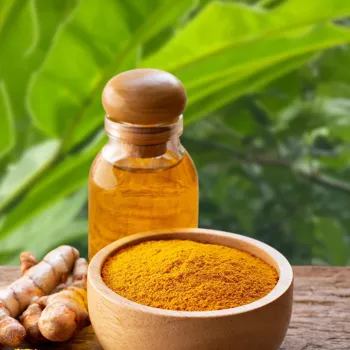
It can help reduce inflammation in the body, which is linked to chronic diseases like heart disease, arthritis, and even Alzheimer's. Turmeric can also act as a powerful antioxidant, protecting your cells from damage caused by free radicals.
Adding a pinch of turmeric to your daily diet, whether it's in your dal, sabzi, or even a warm glass of milk, can contribute significantly to your health.
Ginger: a versatile spice aiding digestion and relieving nausea
Ginger, with its slightly spicy and warm flavour, is another commonly used spice in Indian households. It's a well-known remedy for nausea and digestive issues. Ginger contains compounds called gingerols, which have anti-inflammatory and antioxidant effects.
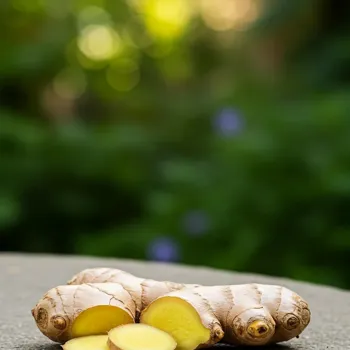
It can help alleviate nausea caused by motion sickness, morning sickness, or chemotherapy. Ginger also aids digestion by stimulating the production of digestive enzymes and reducing bloating.
A cup of ginger tea can be a soothing and effective way to ease an upset stomach or combat morning sickness. Grated ginger can be added to vegetable preparations and dal.
Cumin: versatile spice with health benefits in Indian cuisine
Cumin, those small brownish seeds with a distinctive earthy flavour, are a key ingredient in many Indian dishes. Cumin is known to have digestive benefits, stimulating the secretion of pancreatic enzymes, which help break down food and improve nutrient absorption.
It can also help relieve bloating and gas. Cumin is also a good source of iron, which is essential for carrying oxygen in the blood. Roasting cumin seeds slightly before adding them to your dishes can enhance their flavour and health benefits. It is also believed to promote the health of the body.
Coriander in Indian cuisine: health benefits and culinary uses
Coriander, both the seeds and the fresh leaves (cilantro), are an integral part of Indian cuisine. While we often use coriander as a garnish, it offers more than just aesthetic appeal. Coriander is known to have antioxidant properties and can help lower blood sugar levels.
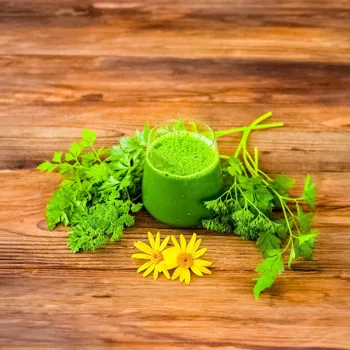
It may also help reduce cholesterol levels and improve heart health. Coriander seeds can be used as a spice in curries and stews, while fresh cilantro leaves can be added to chutneys, salads, and as a finishing touch to many dishes.
Cardamom offers flavor and health benefits in Indian cuisine
Cardamom, with its sweet and aromatic flavour, is often used in desserts and beverages in India. But beyond its flavour profile, cardamom can offer relief from respiratory issues. It is believed to have anti-inflammatory and expectorant properties, which can help clear congestion and ease breathing.
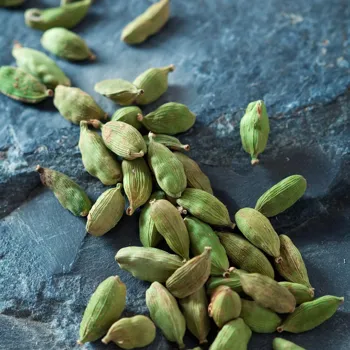
Cardamom can be used in tea, milk, or added to desserts for a flavourful and potentially beneficial addition to your diet. It adds flavour and acts as a beneficial spice used in many foods.
Cinnamon benefits include regulating blood sugar, adding flavor, and health boost
Cinnamon, with its warm and sweet flavour, is a popular spice worldwide, and in India, it's commonly used in desserts and certain savoury dishes. One of the most notable benefits of cinnamon is its ability to help regulate blood sugar levels.

It can improve insulin sensitivity, which helps the body use insulin more effectively to transport glucose from the blood into cells for energy. This can be particularly beneficial for people with type 2 diabetes or insulin resistance.
Cinnamon also possesses antioxidant and anti-inflammatory properties. Sprinkle cinnamon on your oatmeal, add it to your tea, or use it in your baking for a touch of flavour and a boost to your health.
Cloves: versatile spice with health benefits for cooking and dental care
Cloves, those small, dried flower buds with a strong, pungent flavour, are often used in Indian cooking, particularly in biryanis and meat dishes. Cloves contain eugenol, a compound with antiseptic and anesthetic properties. This makes cloves beneficial for dental health and pain relief.
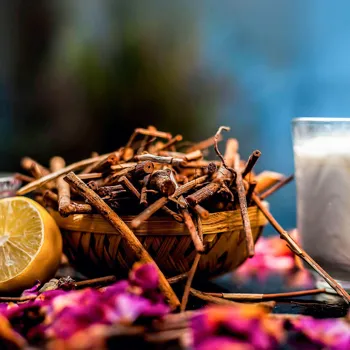
Clove oil is often used to relieve toothaches and to fight oral bacteria. Cloves also have antioxidant and anti-inflammatory properties. You can chew on a clove for a natural breath freshener and potential pain relief, or add it to your cooking for a flavourful and healthy addition.
Fenugreek in Indian cuisine: seeds for lactation, leaves in dishes
Fenugreek, both the seeds and the leaves (methi), are commonly used in Indian cooking. Fenugreek seeds are known to promote lactation in breastfeeding mothers. They contain compounds that stimulate milk production. Fenugreek may also help regulate blood sugar levels and improve cholesterol levels.
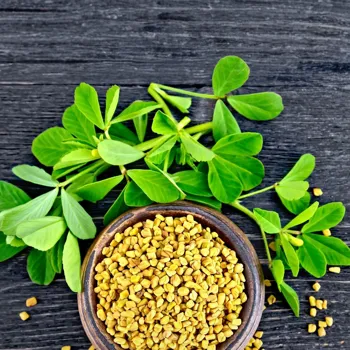
Methi leaves can be used in sabzis and dals, while the seeds can be sprouted and added to salads or used as a spice in curries.
Black pepper enhances nutrient absorption in Indian dishes
Black pepper, the king of spices, is used in almost every Indian dish. While it's primarily known for its flavour, black pepper plays a crucial role in enhancing nutrient absorption.
It contains piperine, a compound that increases the bioavailability of many nutrients, including curcumin from turmeric. This means that when you combine black pepper with turmeric, your body can absorb and utilize the curcumin more effectively.
Black pepper also possesses antioxidant and anti-inflammatory properties.
Mustard seeds, both black and yellow, are often used as a tempering ingredient in Indian cooking. Mustard seeds contain compounds called glucosinolates, which have been shown to have potential cancer-fighting properties in laboratory studies. These compounds may help inhibit the growth of cancer cells and protect against cell damage. Mustard seeds also have anti-inflammatory properties.
In conclusion, Indian spices offer more than just flavour; they are a treasure trove of health benefits.
Incorporating these common spices into your daily diet can contribute to your overall well-being, from boosting digestion and reducing inflammation to regulating blood sugar levels and potentially fighting cancer. So, embrace the flavour and reap the rewards of these amazing gifts from nature, readily available in every Indian kitchen
AI Generated Content. Glance/InMobi shall have no liability for the content


















